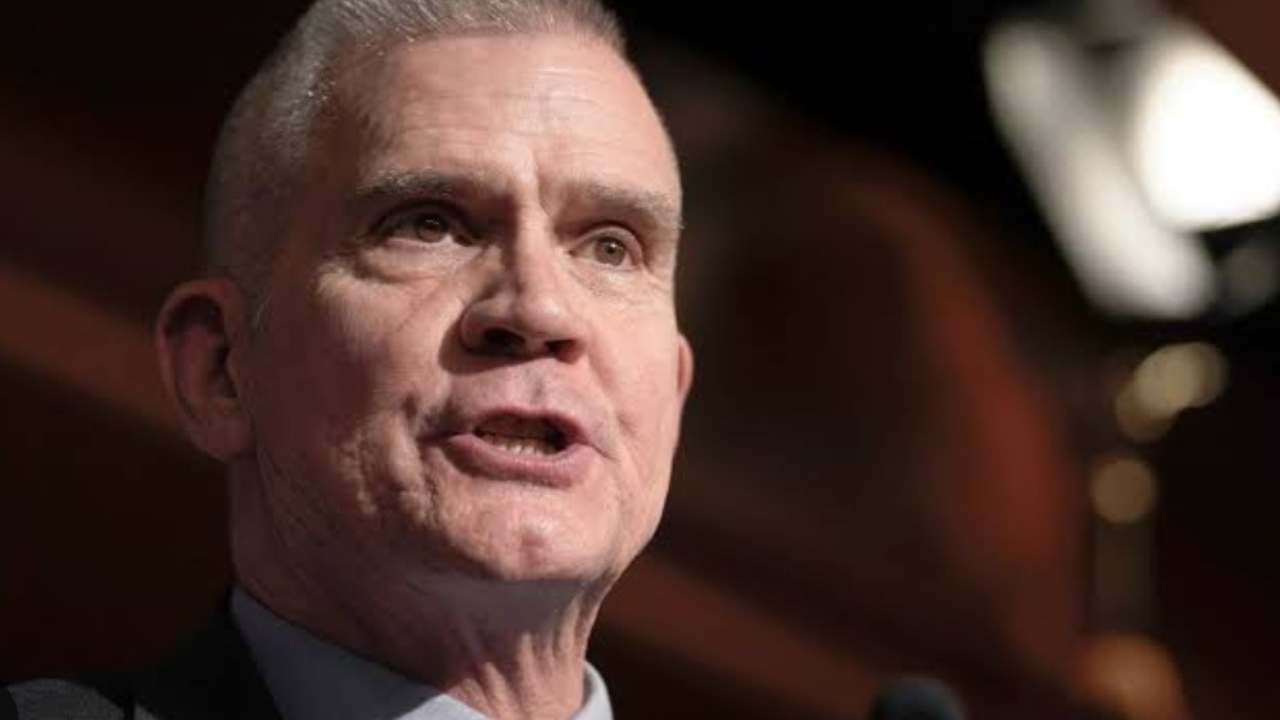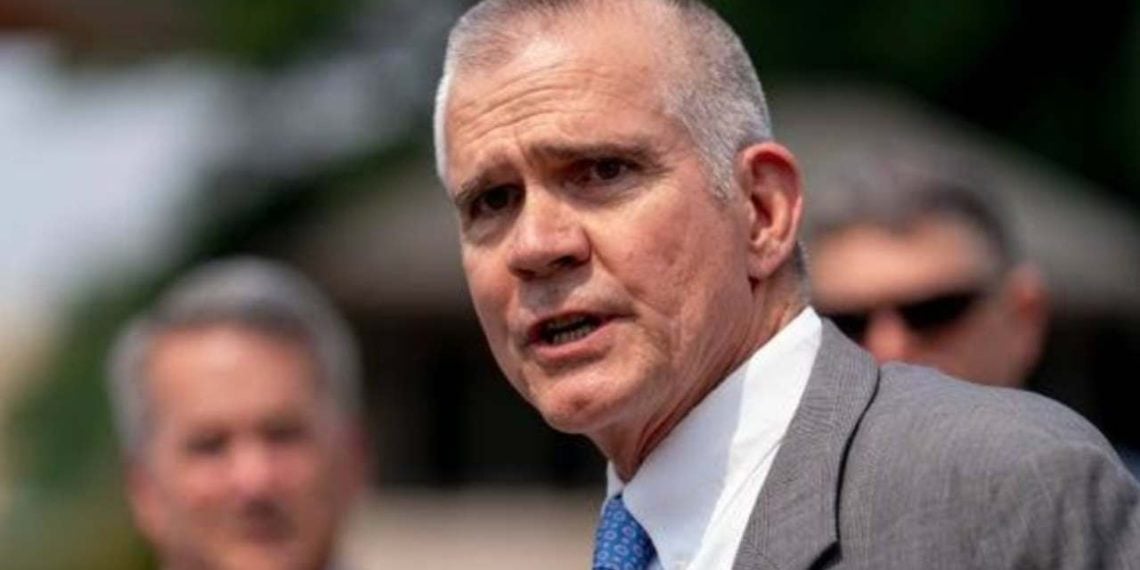GOP Representative Matt Rosendale declared on Friday his candidacy for Senate in Montana, initiating a potentially contentious primary against the preferred choice of national Republicans to challenge vulnerable Democratic Senator Jon Tester.
Rosendale, a member of the staunchly conservative House Freedom Caucus who previously lost to Tester in 2018, will face off against retired Navy SEAL Tim Sheehy.
Sheehy launched his campaign in June and has already secured the endorsement of the National Republican Senatorial Committee, under the leadership of Montana’s junior senator, Steve Daines.
Rosendale’s decision to run counters the preferences of Senate Minority Leader Mitch McConnell, who is backing Sheehy in what is perceived as a crucial race for Republicans aiming to regain control of the Senate.

Rosendale said on social media Friday as he officially announced his run-
“We’ve made great accomplishments in the House, only to see them die at the hands of Mitch McConnell and Chuck Schumer in the Senate.”
“I also respect Matt Rosendale, and was very happy to Endorse him in the past – and will Endorse him again in the future should he decide to change course and run for his Congressional Seat,” Trump wrote on social media. “But in this instance, Tim is the candidate who is currently best-positioned to DEFEAT Lazy Jon Tester, and Regain the Republican Majority in the United States Senate.”
Rosendale brushed off not securing the former president’s endorsement, expressing to CNN’s Abby Phillip on Friday night that Trump-
“Did an incredible job when he was president, and he’s going to do an incredible job next year when he takes the Oval Office. And I plan to be in the United States Senate next year to help him get that agenda through.”
“I will go ahead and win this primary election. I’m endorsed by people across the state who know me the best.”
Both Sheehy and Rosendale have thrown their support behind Trump’s presidential bid. The Montana race serves as a litmus test for national GOP leaders, who are adopting a more hands-on approach in primaries this cycle compared to the past. They aim to avoid past pitfalls where flawed nominees have led to lost seats.
On Friday, Daines criticized Rosendale for entering the primary, heightening worries about the party’s capacity to capture the seat in November.
“It’s unfortunate that rather than building seniority for our great state in the House, Matt is choosing to abandon his seat and create a divisive primary,” Daines said in a statement while reiterating his support for Sheehy.
“Whichever party wins the Montana Senate seat will control the United States Senate in 2024, and Republicans cannot risk nominating a candidate who gave Jon Tester the biggest victory of his career,” he continued.
First elected to the US House in 2020, Rosendale has often been a source of contention within GOP leadership. In October, he was among the eight House Republicans who voted to remove Kevin McCarthy as speaker. Additionally, he initially opposed McCarthy’s bid for speakership in January 2023, eventually opting to vote “present” after multiple ballots, allowing McCarthy to secure the gavel.
House Speaker Mike Johnson, in a notable move, informed several Republicans on Thursday that he would not endorse Rosendale for Senate. This decision followed reports suggesting he was considering backing his House colleague, which received swift backlash. Rosendale had supported Johnson for speaker last fall.
Senator Tester faces a tough reelection battle in 2024 as he vies for a fourth term in the predominantly conservative state of Montana.
Tester’s campaign has been active on Montana airwaves, airing positive ads highlighting his farming background and dedication to public lands, Second Amendment rights, and safeguarding the Montanan way of life.
Financially, Tester ended December with over $11 million in cash on hand, whereas Sheehy closed the year with more than $1.2 million in his campaign account. Rosendale, on the other hand, had nearly $1.7 million in his House campaign coffers as of December 31, which he can transfer for use in his Senate bid.
Rosendale’s background includes service in the Montana Legislature and as state auditor. He relocated to Montana in 2002, though his roots in Maryland have been a frequent target of Democratic criticism, particularly in his 2018 Senate race against Tester, which the incumbent won by less than 4 points.





